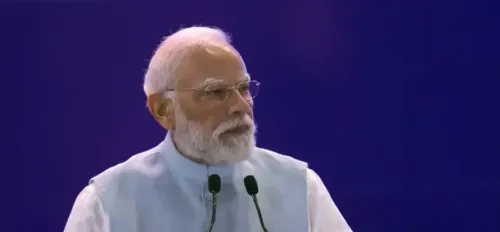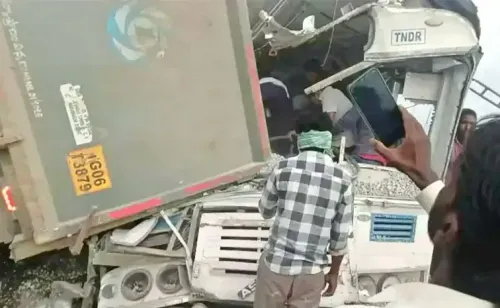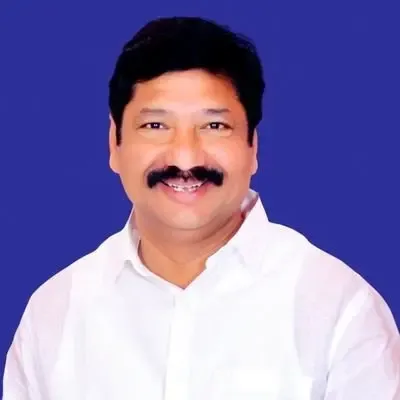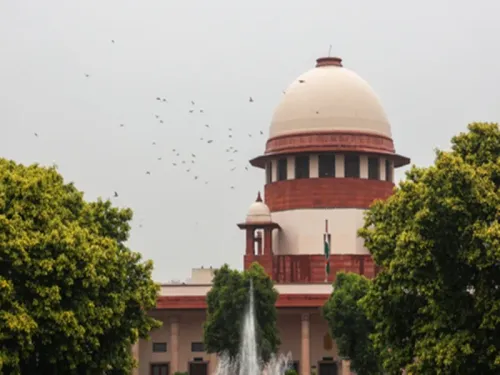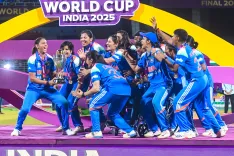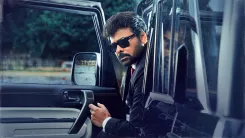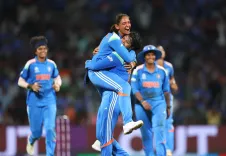Is India Ready to Embrace One Nation, One Election?
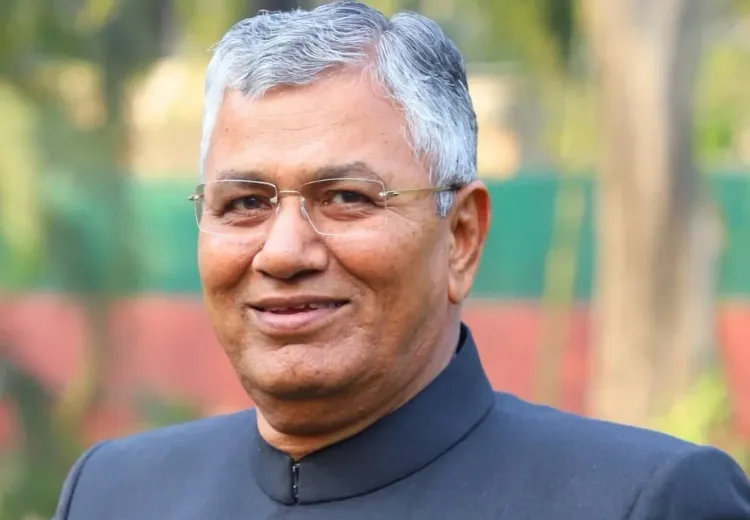
Synopsis
Key Takeaways
- The One Nation, One Election initiative aims to synchronize elections across the country.
- Positive feedback from a diverse range of stakeholders has been received.
- Concerns regarding federalism and Election Commission powers are being addressed.
- The initiative promises reduced electoral costs and improved governance.
- Deliberations are expected to take two to two and a half years.
Jaipur, July 12 (NationPress) The Chairperson of the Joint Parliamentary Committee (JPC) on One Nation, One Election and BJP MP, P.P. Chaudhary, stated on Saturday that the overall reception to the discussions and deliberations undertaken by the committee regarding the new electoral reforms suggests that the nation is prepared to seriously evaluate it in the interest of the country.
He asserted that as the Chairperson of the Committee, he can confirm that the proposal for One Nation, One Election has fostered constructive and extensive engagement throughout the nation.
He stressed that the expert consensus is that the concept is both constitutionally allowable and operationally viable, provided it is executed with the necessary safeguards, which is precisely what this Committee is striving to achieve.
“We aim to carry out the most thorough and inclusive deliberation possible; hence, we seek to encompass all states and union territories,” Chaudhary told IANS during an exclusive interview.
Interview excerpts:
IANS: What kind of feedback is being received on 'One Nation, One Election' across the country?
P.P. Chaudhary: As the Chairperson of the Committee, I can confirm that the proposal for One Nation, One Election has cultivated constructive and extensive engagement nationwide. We have garnered feedback from a diverse array of stakeholders such as legal experts, political parties, civil society organizations, Public Sector Undertakings, state governments, and citizens. There is increasing acknowledgment of the tangible advantages: reduced election costs, improved policy continuity, and a governance framework devoid of incessant campaign cycles. Although certain questions have arisen, especially regarding the implementation mechanics, the overall response suggests that the nation is ready to earnestly consider this reform for the national good.
IANS: The committee has been consulting legal experts and jurists. What are the primary concerns?
P.P. Chaudhary: We have had the honor of consulting some of the most esteemed legal and constitutional authorities in the country. While federalism and constitutional structure were identified as theoretical concerns, it is noteworthy that many former Chief Justices and senior jurists have unequivocally expressed that the proposal does not infringe upon the fundamental framework of the Constitution. They have pointed out existing constitutional provisions that permit synchronization within a clearly defined legal structure.
The expert consensus is that the concept is both constitutionally permissible and operationally viable, provided it is executed with the necessary safeguards, which is exactly what this Committee is endeavoring to establish.
IANS: Study tours have been organized only in a few states. Are there more states in the pipeline? Has a deadline been set for the completion of the study tours?
P.P. Chaudhary: Thus far, the Committee has conducted two study tours, covering several states and one union territory – specifically Maharashtra, Uttarakhand, Punjab, Haryana, Himachal Pradesh, and Chandigarh. During these visits, we engaged extensively with state administrations, chambers of commerce, legal scholars, and civil society to gauge the ground-level feasibility of simultaneous elections.
Significantly, Chief Ministers, Deputy Chief Ministers, and Speakers of Legislative Assemblies have presented their perspectives before the Committee, marking an unprecedented level of state-level engagement in the history of parliamentary committees. We aspire to conduct the most comprehensive and inclusive deliberation possible, and therefore, we aim to cover all states and union territories. Given the magnitude and seriousness of this undertaking, these discussions are anticipated to extend over a period of approximately two to two and a half years.
IANS: Are there any specific concerns that you believe should be addressed? For instance, some reports suggest that the Election Commission should not be granted excessive powers.
P.P. Chaudhary: The Committee has engaged in a comprehensive and clause-by-clause examination of the proposed Bills, and naturally, certain concerns have been raised. Allow me to reiterate that the Committee’s mandate is to investigate all legal and constitutional dimensions and to propose necessary enhancements that address such concerns.
IANS: What is the way forward regarding these concerns?
P.P. Chaudhary: All concerns brought to the Committee, whether legal, operational, or constitutional, will be discussed thoroughly, with input from pertinent stakeholders and experts. The Committee is dedicated to a consultative, evidence-based process, and the results of this rigorous endeavor will be reflected in the final report submitted to Parliament. We aim to ensure that the proposed framework is robust, inclusive, and aligned with the principles of our Constitution.

